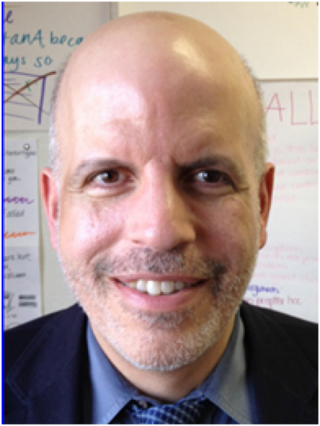Education
Larry Ferlazzo: Teacher Voice and Highly Public Voice
Interview with Larry Ferlazzo reveals approaches to sharing beyond the classroom
Posted October 1, 2018

Larry Ferlazzo writes an Education Week column (Classroom Q&A), a New York Times column (The Learning Network), an award winning blog (Larry Ferlazzo’s Websites of the Day), countless books, and for leading education magazines. He shares internationally, such as through the British Council and BBC. He’s won major awards and his articles on policy regularly appear in The Washington Post and Huffington Post. He has a popular radio show, huge social media presence, and more.
…all while simultaneously serving as a high school teacher.
I regularly encourage teachers to share their expertise widely and drive field-improving dialogue (covered in my latest book). The epitome of that superstar teacher is Ferlazzo. So, how does he do it all? I had the honor of interviewing Ferlazzo to learn more.
Jenny Rankin (JR): What initially sparked your interest in leading and contributing to education discourse beyond school walls?
LF: Larry Ferlazzo (LF): I was a community organizer for nineteen years prior to becoming a high school teacher, so a desire to connect more widely is a natural outgrowth of that background. While I was organizing, I was seeing that people in their thirties, forties, fifties, sixties and beyond were transforming their lives through the lessons they were learning – that they had the power to make change, that they had leadership skills, and that by sharing individual stories they could develop a different interpretation of them that lead to action. That made me wonder how much better people’s lives would be if they came to those realizations earlier in life. And that wondering led me to make a career change by becoming a public school teacher.
JR: How do you balance all of your projects outside the classroom with the demands of serving as a great teacher?
LF: All those projects do take time. However, I’m pretty careful to ensure that the vast majority of my work outside of the classroom has a direct connection to my classroom life. So, the reading, writing, listening and speaking I do outside of my teaching time all contribute towards making me a better teacher. And I say no to anything that I don’t believe will lead me towards that goal.
JR: When writing, tweeting, interviewing, etc., how do you decide what topics to cover?
LF: Again, it’s fairly simple – if I can’t use it in the classroom or if it doesn’t support my social justice, equity, and public policy beliefs about education and other issues, I won’t do it. And, of course, the quantity of what I do is also governed by having time for family, friends, and basketball, too!
JR: How does your teaching role influence what you share with audiences outside the classroom?
LF: The fact that I’ve been a full-time teacher for seventeen years and, therefore, in the classroom every day impacts what I share through making it practical. And when I say “practical,” I don’t only mean strategies and materials used in lessons. It also means talking about the public policy issues that every day impact our schools, us teachers, our students and their families.
JR: When researching a new story or book topic, do you often learn strategies and insights that you can then incorporate in the classroom?
LF: There’s no question that writing a book, reading new research, or learning about innovative ideas on social media forces me to “up my game” in the classroom in lots of ways – creating higher quality materials, being creative in trying out new instructional strategies, thinking more consciously about implicit biases. I’m sure other people have lots of valid reasons for writing, reading, and listening about education, but – for me, at least – I’m not that sure about what the point would be if you couldn’t try out what you were learning….
JR: Can you tell us the story of how you landed one of your high-profile projects?
LF: I began my resource-sharing blog eleven years ago as a way to keep track of materials and sites I would use for my students, and as a place where my students could go to access them. More and more teachers found it helpful and, because of the blog’s popularity, I’ve been lucky that other people have approached me with cool ideas and I’ve been able to run with a few of them.
JR: What have you found to be the benefits of engaging with large and varied audiences?
LF: “Engaging” means it’s reciprocal, and I have learned so much from so many. I have received a great deal of support, I’ve learned from teachers in similar and different situations, and have also been challenged. I have great colleagues at my school get similar benefits there. But having a “large and varied audience” creates opportunities for even wider connections and possibilities.
JR: You write but also speak publicly, such as on your BAM! Education Radio show. What considerations do you keep in mind when using one format or the other?
LF: At all times and in all venues, I’m a fan of brevity and practicality.
JR: Your openness and passion for exchanging ideas with others shines. Taking into account everything you’re involved in, what is your favorite part of what you do?
LF: Nothing beats (the vast majority of time, at least :-) teaching in the classroom, building relationships with students and their families, and, through that work, learning and making the world a little better place each day. I’d bet most teachers would say something similar.
JR: What advice do you give teachers who are interested in sharing their expertise outside of school but don’t know where or how to begin?
LF: I’m a big fan of teachers writing their own blogs. It’s a great reflective opportunity. Then use the educator networks on social media to share your commentaries and read others.
JR: Thank you for your time: not only for this interview, but for what you do in the classroom and for all the quality discussion you put out into the world so that students can benefit.




